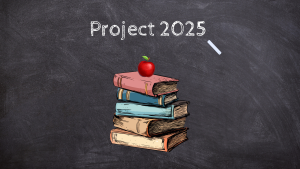Class of 2020 face prospect of remote work due to interference with post-grad plans

With economists predicting that the post-COVID-19 economy will enter into a recession, this year’s college seniors are facing the same economic stresses the Class of 2008 faced when they graduated during the Great Recession, leaving many career plans in limbo.
Graduating seniors AnnMarie Morrison (’20) and Hannah Gonzalez (‘20) spent this spring enduring the rigorous application process for the highly selective Disney College Program.
Approximately 20 percent of applicants are accepted into the program, which was scheduled to start June 1. However, due to the COVID-19 pandemic, Morrison and Gonzalez have had their post-graduate opportunities canceled. They must reapply for next summer and are unsure if they are guaranteed admittance.
“I think this was a smart move for them, but I don’t have a plan now,” said Morrison. “I was so organized and excited, and now my life feels on hold for seven months until I can go back and hopefully work there again,” said Gonzalez.
This issue is not unique to Morrison and Gonzalez, as many graduating seniors around the country are left in a state of anxiety while watching their post-graduate plans fall away. Internships have been postponed or canceled and many companies are experiencing massive lay-offs or hiring freezes.
“Economists now are not wondering whether there will be a recession; they are wondering about the shape of the recession,” said Dr. Anca Voicu, current chair of the Department of Economics.
In economic theory, recessions are categorized into different shapes that dictate what characteristics the recession will have. A V-shaped recession is one that takes a steep fall, hitting the worst point briefly before taking an exponentially quick rise. On the other hand, a U-shaped recession takes a downturn, remains at its worst for a longer period of time than the V-shape, and begins to make a comeback. Lastly, an L-shaped recession occurs when the economy falls quickly and fails to recover for a long period of time.
“If it is U-shaped, then the Great Recession of 2008-2009 points out that we can resolve the economy reasonably well in the medium term,” said Voicu. “If it is V-shaped (best case scenario), no worries. If it is L-shaped, we are in trouble.”
While the amount of time the economy will take to recover is difficult to pinpoint, seniors can still expect difficulties in their job search.
Voicu said, “In terms of student employability, again with a V-shaped recession, the job market will bounce back … If we have a U-shaped recession, the current graduates may find it problematic. It is not easy to be a college graduate during economic downturns. But, again, the results for 2008-2009 show that by next year we should have a recovery. If it is L-shaped, economists can’t do much. It is up to the research scientists.”
While the job market is predicted to be difficult to navigate, the Center for Career and Life Planning (CCLP) is currently working to help graduating seniors with their post-graduation plans during this crisis.
In an email sent to seniors on April 10, CCLP attached a “Senior Survival Guide,” which had tips for finding a job during the pandemic. The center advised students to shore up their virtual resumes, prepare for interviews, emphasize their transferable skills, and find and apply for positions that can be done from home.
“Students need to understand how they can make a plan and gain other skills for the job market,” said Denise Cordova, assistant director of employer engagement at CCLP. “Students need to think about what jobs can be done remotely. What kind of technical skills can I gain?”
During this time of social distancing, many companies such as Walmart, Amazon, and NIKE are offering remote customer service opportunities.
“[Seniors] can prepare themselves through LinkedIn Learning, by getting more aptitudes in Excel, by getting trained on social media marketing, and by getting trained on digital design and Adobe Photoshop,” said Cordova.
The most recommended option for students is to stay positive.
“The class of 2020, despite the current economic conditions, should stay optimistic. Why? Because a) this is temporary, and b) we will get through this. They will be successful in their professional journeys,” said Voicu.
In the meantime, Voicu encouraged students to stay connected with their social support systems and brainstorm options together, using this unprecedented experience as a learning opportunity.
“Senior year already has a lot of pressure involved. It’s all about the future, and it’s unnerving to have your image of the future altered,” said Morrison. “Still, we’re resilient. We can take this time to do career prep, to discover what it is we really want, or even just unwind. I think we can come out of this stronger than we were before. Keep your heads up, seniors.”









Comments are closed.